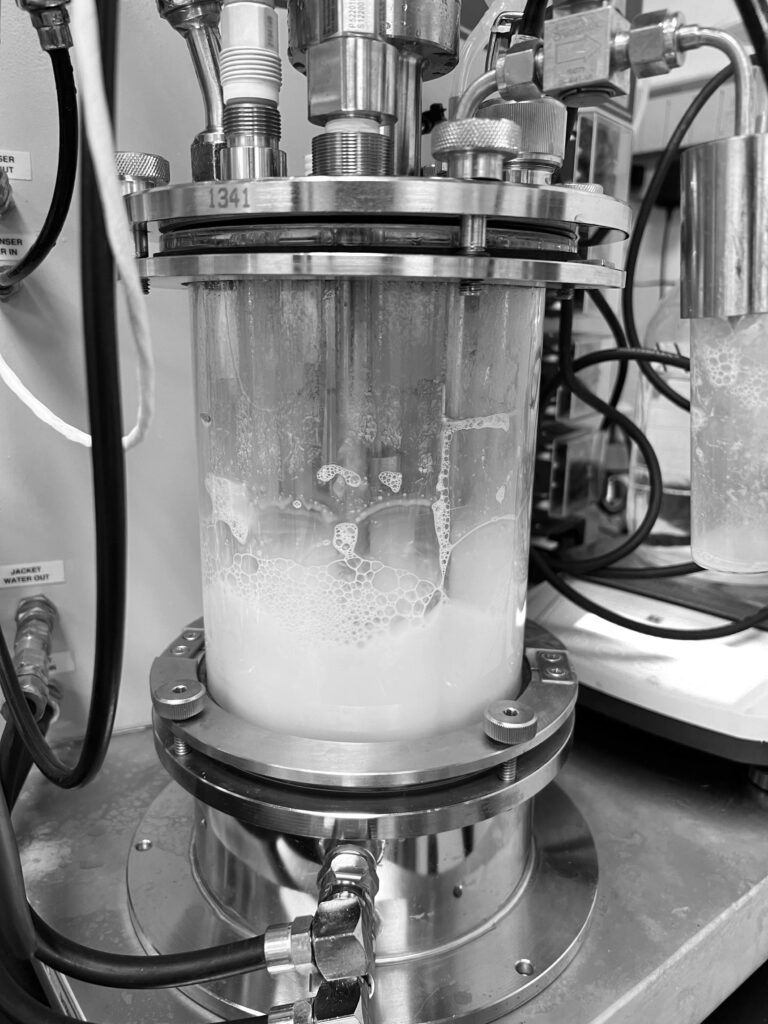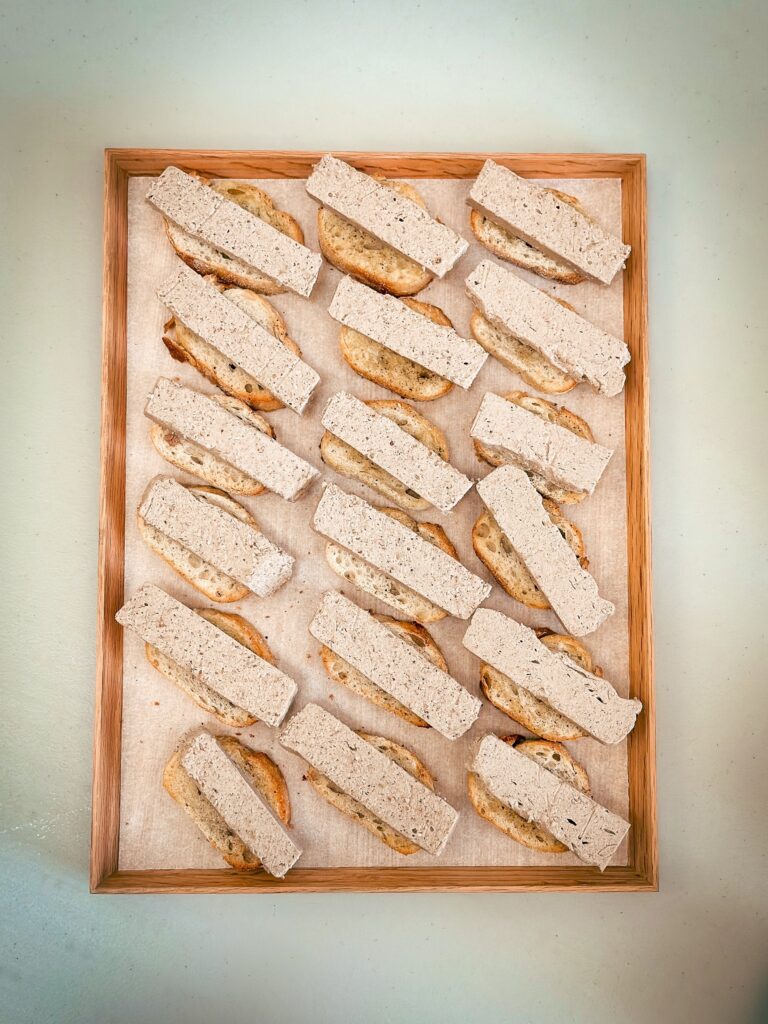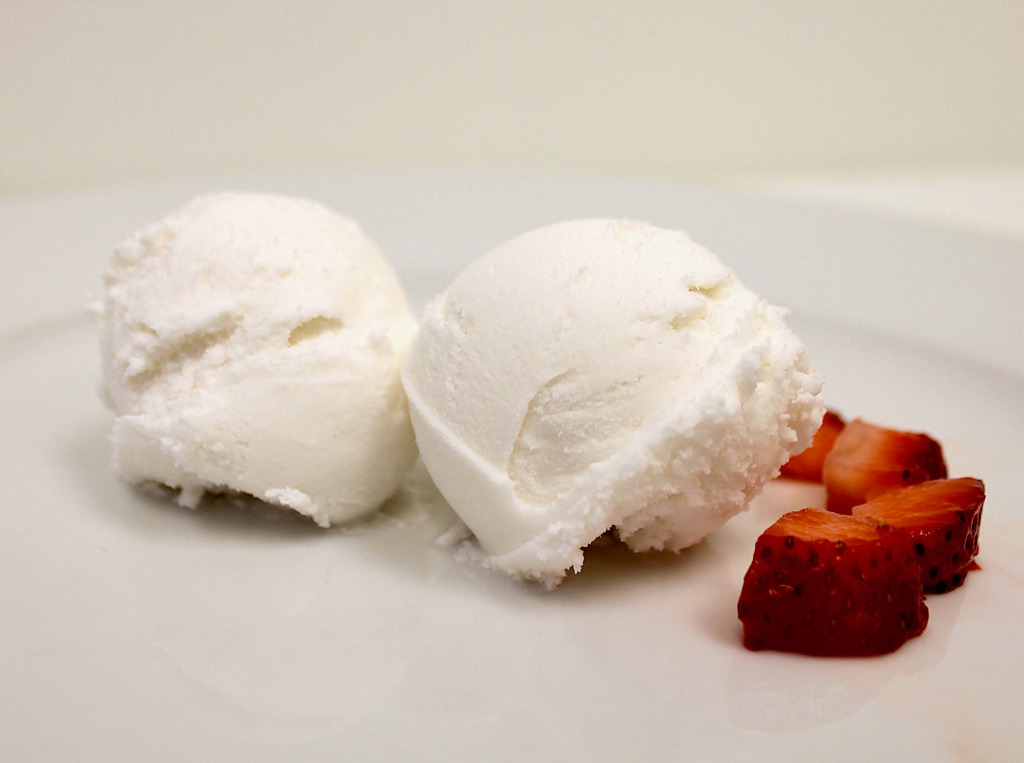A Better Dairy-Free Ice Cream: Yali Bio Showcases Precision-Fermented Fat at Food Tech Event
4 Mins Read
Californian food tech startup Yali Bio unveiled its precision-fermented fat at the MISTA Growth Hack event in San Fransisco, debuting the alternative with a dairy-free ice cream. Now, it plans to roll out its fat to manufacturers looking to elevate their plant-based offerings.
Months after joining MISTA, a food tech innovation platform, to accelerate its goal and facilitate partnerships with other manufacturers, Yali Bio has unveiled a precision-fermented fat at MISTA’s Growth Hack event via a dairy-free ice cream.
Founded in 2021, Yali Bio engineers alternatives to animal and certain plant-based lipids and fats that are key to the taste and texture of products like cheese, desserts and baked goods, as well as meat. The ice cream that demonstrated this solid fat – developed in partnership with MISTA supports including Givaudan, Ingredion and AAK – ran out in less than an hour.

A fat for better-tasting meat and dairy alternatives
Yali Bio described the fat as having a “pale, buttery colour and neutral flavour”. Thanks to its precision fermentation tech, qualities like the melting point of the fat – which is crucial for baked goods – can be fine-tuned to suit various applications.
The company adds that it can be used to enhance the taste, texture, cooking performance, nutritional qualities and environmental credentials of “entire food categories”, including non-dairy butter, cheese, baked goods and candies. Expanding on the health aspect, Yali Bio’s precision-fermented fat boasts benefits over other plant-based oils: for example, it has half the saturated fats and five times the monounsaturated fats found in coconut oil, a widely used ingredient in vegan dairy products.
The importance of taste and texture in plant-based meat and dairy can hardly be overstated. For instance, a recent Mintel survey revealed that flavour is the biggest deterrent (48%) to trying meat alternatives in the US, followed by nutrition (35%). Similarly, Kroger data collated by the Plant Based Foods Association and insights firm 84.51° (covering 60 million US households) found that texture is what consumers dislike the most about vegan food.

Having received positive feedback on the ice cream time and again at the event, Yali Bio founder and CEO Yulin Lu touched upon this aspect as well. “It was great that the ice cream was so popular, but we were especially pleased that so many people applauded the taste and texture.”
To advance its mission, the company tapped former Impossible Foods executive Don DeMasi as its senior VP for engineering and biomanufacturing. The alt-meat giant has built its success upon its own precision-fermented, iron-containing ingredient called heme, which helps its burgers bleed and provides the metallic taste associated with meat.
DeMasi is focusing on building biomanufacturing capacity and process development to help scale production. Yali Bio, which raised $3.9M in seed funding last year to take total investment to $5M, is currently building a new lab and looking to offer its fat to food manufacturers in a B2B business model. It hopes to reach full production capacity within the next year or two, barring any regulatory hurdles. The startup says the use of plant-based ingredients instead of cell cultivation makes for a much simpler regulatory process.
The fat comeback
Yali Bio is part of a growing number of companies working in the alt-fat space. At this year’s SXSW Syndey, Australia’s Nourish Ingredients showcased Tastilux, a “breakthrough fat” made from naturally occurring lipids scaled through precision fermentation to help deliver the same taste and texture as conventional meat.
While these aspects are key, so are the environmental credentials. Yali Bio argues its fat is better for the planet than its dairy or coconut counterparts, since it can be made efficiently via techniques and equipment similar to the ones used to brew beer, with “very low greenhouse gas emissions and very high supply chain transparency”.

This is the target of palm oil substitutes like PALM-ALT, developed by Edinburgh’s Queen Margaret University and – like Yale Bio’s fat – touted as a game-changer for baked goods due to the ability to remain solid at room temperature. Palm oil is directly linked to tropical deforestation (which is responsible for 20% of all GHG emissions annually) and wildfires, but it accounts for 40% of all oil produced. Present in half of all supermarket items across multiple categories, its production is set to increase by 50% by 2050.
Other companies innovating with fermentation-based palm oil alternatives include British firm Clean Food Group, New York-based C16 Biosciences (where DeMasi used to previously work), Dutch startup NoPalm Ingredients, and Estonia’s startup Äio. Meanwhile, German biotech firm Colipi is using precision fermentation to turn yeast into ‘Carbon Oil’.
“Anything that enables us to move from an animal-based agriculture to an animal-free world using biomanufacturing is a worthy pursuit,” Edward Shenderovich, managing partner at lead investor Essential Capital, told TechCrunch last year. “Yulin identified an important pain point in the adoption of plant-based, fermented and cultivated food. Most cultivated meat is just proteins, and we like to eat fat. Fat has been demonised, but it is making a comeback.”




